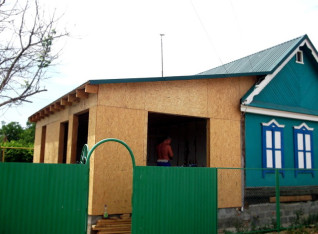Лоер
How much does it cost to legalize an extension to a private house.
An extension to a real estate object is an expansion of the building beyond its original load-bearing structures, which includes one or more common load-bearing walls. Such an application can be made to both residential and non-residential real estate, depending on the purpose of the main object.
The process of legalizing an extension includes numerous shades. For example, the construction of a balcony on the first floor of an apartment is also considered an extension, and its design may involve certain challenges. An extension can include a variety of elements, such as a porch, shed, veranda, stairs, etc.
The choice of the procedure for registering an extension depends on several factors, such as whether it is capital, year of construction, area, and so on. Capital additions are drawn up according to the general construction procedure, which includes obtaining permits. Non-capital objects, in turn, do not require a permit.
Getting your home extension legal can be a complicated process, but here are some steps that can help you along the way:
Check your local building codes and regulations: Before starting any work, make sure you understand all the building requirements in your area.
Get a building permit: Contact your local planning department or building inspector to get a permit to build an extension. It is usually necessary to submit a detailed construction plan and other documents.Gather all necessary documents: Depending on local requirements, you may need to obtain some documents such as building plans, engineering calculations, contract with the construction company, etc.
Conduct an inspection: After the addition is completed, an inspection will be conducted to ensure that the work has been completed in accordance with building codes and permit requirements.
Get a final permit: If the building passes the inspection successfully, you will be issued with a final permit to use the extension.
Registration with local authorities: After receiving final permission, you may need to register the extension with local authorities.
Please note that the approval process may vary depending on local requirements and regulations, so it is best to consult with your local authorities or building professionals.
How to legalize an extension to the house through the court
Legalizing an addition to a house through court can be a complex and lengthy process, but here is a general plan of action:
Consult with an attorney: Start by consulting with an experienced real estate and construction attorney. He will be able to assess your situation and provide recommendations for next steps.
Gather evidence: Gather all possible evidence that supports the legitimacy and safety of your extension. This may include construction plans, construction photographs, engineering reports and any other documentation that can demonstrate compliance of the construction with building codes and regulations.
Preparation of the lawsuit: Together with your lawyer, prepare a lawsuit for the legalization of the extension.In the claim, you must state all the facts of your case, including the circumstances of the construction, evidence of legitimacy and the importance of legalizing the extension.
Filing the claim in court: After preparing the claim, your attorney will file it with the appropriate court along with the necessary paperwork and evidence.
Participation in the trial: You or your attorney must be prepared to participate in the trial, including answering any court questions and presenting evidence for your side.
The court's decision: The court will make a decision based on the evidence presented and the arguments of both sides. If the court approves your claim, the extension will be legalized, but if not, you may need to consider other options.
Please note that litigation can be expensive and time-consuming, so it is important to prepare thoroughly and consult with a qualified attorney before starting this process.
The procedure for registration of an extension to a house or building is regulated by a number of key factors. First, the time of its construction, the location and the total area of the object are taken into account. In addition, the type of object to which the extension is planned affects the procedure. For example, how to legalize an arbitrary extension to an apartment building is possible, but it is associated with certain challenges, since it is difficult to actually obtain the right to a land plot near the building according to the legislation of Ukraine. In particular, construction is possible only on land plots in the presence of ownership or rental rights





























